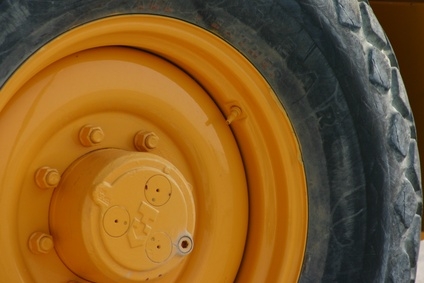
The wheel bearings on a vehicle help its tires rotate properly by ensuring frictionless movement within the hub, tire and wheels. In addition to tire rotation, both pairs of front and back wheel bearings also sustain the weight of the vehicle, supporting an average of 850 pounds on a typical sedan. Front wheel bearings are especially vital to front tire function; and if they fail, the front wheels will not move freely and several symptoms will appear.
The most common symptom of a front wheel bearing problem is noise coming from the front tires. The wheels will emit a high-pitched squeak or a rumbling sound, especially during sharp turns. The noise may become louder during acceleration or deceleration, and it may disappear completely when the vehicle is riding at a steady speed. Also, the noise may worsen when the brakes are applied.
A vehicle with a faulty front wheel bearing may have turning and steering problems. The vehicle may veer off course during a turn, causing wide turns rather than sharp precise ones. You may feel tugging in the steering wheel during a turn, indicating resistance from the front tires. Also, when you try to steer the vehicle, the front tires may seem wobbly and veer back and forth instead of following a straight line.
The front wheel bearing keeps the tire spinning smoothly; but when it is faulty, it causes undue tire friction and leads to excessive and premature tire wear. Accordingly, you may see visible damage on a vehicle's tires, such as cracked and peeling treads, due to wheel bearings that are loose or degraded. Tires that do not rotate properly can create metal-on-metal scrubbing within a wheel due to excessive friction. This friction produces heat, causing grease inside the wheel hub to burn and produce smoke. If this happens, you will often see white smoke coming from the tires, accompanied by a burning smell.